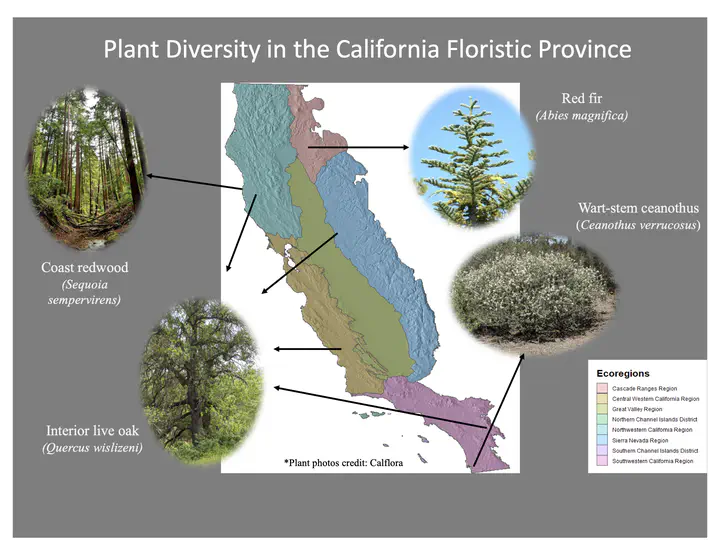Rarity, Geography, and Plant Exposure to Global Change in the California Floristic Province

Abstract
Aim: Rarity and geographic aspects of species distributions mediate their vulnerabil-ity to global change. We explore the relationships between species rarity and geogra-phy and their exposure to climate and land use change in a biodiversity hotspot.Location: California, USA.Ta x a: One hundred and six terrestrial plants.Methods: We estimated four rarity traits: range size, niche breadth, number of habitat patches, and patch isolation; and three geographic traits: mean elevation, topographic heterogeneity, and distance to coast. We used species distribution models to measure species exposure—predicted change in continuous habitat suitability within currently occupied habitat—under climate and land use change scenarios. Using regression models, decision-tree models and variance partitioning, we assessed the relationships between species rarity, geography, and exposure to climate and land use change.Results: Rarity, geography and greenhouse gas emissions scenario explained >35% of variance in climate change exposure and >61% for land use change exposure. While rarity traits (range size and number of habitat patches) were most important for ex-plaining species exposure to climate change, geographic traits (elevation and topo-graphic heterogeneity) were more strongly associated with species’ exposure to land use change.Main conclusions: Species with restricted range sizes and low topographic hetero-geneity across their distributions were predicted to be the most exposed to climate change, while species at low elevations were the most exposed to habitat loss via land use change. However, even some broadly distributed species were projected to lose >70% of their currently suitable habitat due to climate and land use change if they are in geographically vulnerable areas, emphasizing the need to consider both species rarity traits and geography in vulnerability assessments. publication: ‘Global Ecology and Biogeography